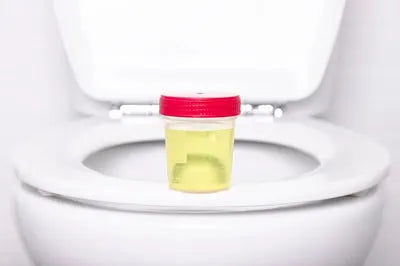Kidney stones are a prevalent and often very uncomfortable disease that affects millions of people. There are many causes of kidney stones, but diet is a major cause. Understanding what foods contribute to kidney stones is essential for prevention and management. This article discusses foods that affect kidney stones and top ten foods to avoid for proper kidney health.
What are Kidney Stones?
Kidney stones are small, solid concretions that are formed in the kidneys or the urinary tract. They form through the deposition of certain chemicals including calcium, oxalate and uric acid in urine being deposited in a crystalline form and binding together. The stones can be of any size, while the small stones may pass through the urinary tract without being felt, the large ones may cause a lot of pain and discomfort.
Symptoms of kidney stones include sharp pain in the back or abdomen, nausea, vomiting, and blood in the urine. While genetics, hydration levels, and certain medical conditions can increase your risk, knowing what foods contribute to kidney stones can help you take preventative measures. Click here to read more about can kidney stones cause incontinence?
Importance of Diet When You Have Kidney Stones
Dietary choices directly impact the composition of urine and the likelihood of stone formation. There are foods that increase the level of substances that form stones and there are foods that help in diluting urine and thus reducing the formation of stones. Kidney stones are common among individuals and it is essential for such people to know about what are the 10 foods that cause kidney stones to reduce the risks of recurrence.
Foods that affect kidney stones have high oxalate content, calcium or purine which are known to cause formations. Cutting down on these foods and ensuring you take enough water can greatly reduce your risk of developing kidney stones.
What Are The 10 Foods That Cause Kidney Stones
The answer to what foods contribute to kidney stones is as follows:
Spinach
Spinach contains high levels of oxalates, substances that combine with calcium in the urine to form the stones. It is good for the body when taken in moderate amounts but when taken in large amounts, it raises the chances of developing kidney stones.
Beets
As with spinach, beets also contain high levels of oxalates. Excessive intake raises the risk of stones, particularly for people with a prior history of kidney stones.
Nuts and Seeds
Oxalates are also found in almonds, cashews, and peanuts. They are good sources of healthy fats and proteins, but should be consumed in moderation if you are suffering from kidney stones.
Rhubarb
Rhubarb is rich in oxalates and should not be taken or taken in limited quantities by those at risk. Oxalate levels can be lowered through cooking but it is not completely eradicated.
Chocolate
Most chocolate products contain high levels of oxalates and sugar which are known to contribute to the formation of stones.
Red Meat
Red meat is high in purines and can cause the production of excessive uric acid which is present in some kidney stones.
Processed Foods
Most processed foods contain high levels of salt and these raise the calcium content in the urine thus encouraging the formation of calcium stones. Sodium intake should be limited in order to protect the kidneys.
Cola and Sugary Drinks
Phosphates in cola beverages directly affect stone formation, while obesity and dehydration resulting from consumption of sugary drinks, indirectly affect the formation of kidney stones.
Tomatoes
Although tomatoes are healthy for consumption, they contain high levels of oxalates which is dangerous. It is recommended to limit the intake because it may lead to formation of kidney stones.
Shellfish
Shellfish is also a source of purines, and this food raises the level of uric acid in the body. Avoidance of shellfish is recommended for the prevention of uric acid stones.
Conclusion
Kidney stones are a painful disease that can affect your life in a very negative way. However, understanding what foods contribute to kidney stones and making smart dietary choices can help prevent their formation. Reducing the consumption of high risk foods such as spinach, red meat and processed foods is crucial in managing kidney health. Feel comfortable with the breathable friends' premium adult diaper pants.
Product Recommendations
FAQs
-
Which foods should be avoided when one has kidney stones?
The foods that are very bad for kidney stones include foods that are high in oxalates such as spinach, beets, foods rich in purines such as red meat, shellfish and foods with high sodium content such as processed foods.
-
Which foods are most likely to contribute to the formation of kidney stones?
Spinach, chocolates, nuts, rhubarb, red meat, and foods high in sodium are likely to cause formation of kidney stones due to their oxalate, purine or sodium content respectively.
-
Is milk good or bad for kidney stones?
In fact, milk does not harm kidney stones if taken in moderate amounts. Contrary to what most people believe, taking enough calcium can actually prevent oxalate stones from forming.
-
Does tea cause kidney stones?
High oxalate content of tea, especially black tea, is also associated with kidney stones if one takes large proportions of tea.
-
Is consuming eggs good or bad for people with kidney stones?
Eggs are low in oxalates and purines and therefore eggs are considered to be safe protein for kidney stone prevention.




















